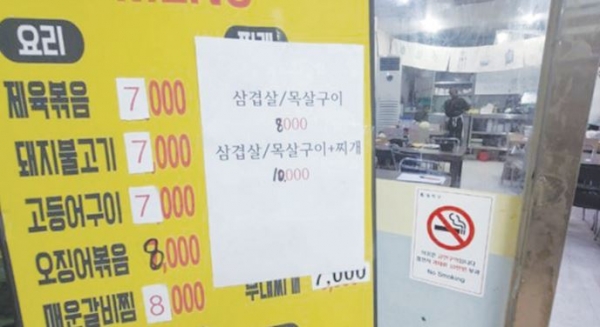
One of the keywords in Korea in 2021 was the inflation rate. Many consumers reported that the price of goods in markets increased significantly over the past few months. In 2020, the Bank of Korea (BOK), stated in their reports that the inflation rate was worrisome as it was too low. The inflation rate in 2020 recorded an all-time low of 0.54% due to a great fall in spending after COVID-19. However, things took a turn in 2021 as the average inflation rate soared to 2.5%, and from October 2021, the inflation rate exceeded 3% every month. The BOK announced at the end of 2020 that their primary objective is keeping the inflation rate under 2%, but reports from 2021 showed clearly that their goal was unachieved. Moreover, the BOK increased their forecast on the inflation rate frequently from 2.1% to 3.1% in their reports on expectations for the Korean economy in 2022 and received wide criticism.
The latest inflation rate in February was 3.7%. The rise in the inflation rate has steadied, but 3.7% is still very high. The Federal Open Market Committee declared that the appropriate inflation rate for long term growth should stay within the range of 1.5% to 2.0%. High inflation rates are not always dangerous; inflation is inevitable when a country experiences economic growth. The BOK declared that Korea’s growth domestic product (GDP) grew by 4% last year, which was a steep growth compared to -0.8% in 2020. However, recent reports from various economists, including Professor Yong-sung Chang of Seoul National University, Department of Economics, mentioned that Korea could soon face stagflation, where economic growth decreases and the inflation rate increases, which is considered to be a catastrophe for an economy
Russia’s invasion of Ukraine has covered most headlines over the past few weeks. The global economy has been significantly affected, and Korea is not an exception. The U.S. and European countries imposed various economic sanctions to pressure Russia. Consequently, global oil prices increased as Russia is one of the world’s biggest exporters of crude oil. Korea is highly dependent on imports, especially raw materials, and therefore experienced serious pressure after the increase in global oil prices. Not only this, but the global inflation rate has also increased in the past few months. As most Korean goods, except for a few products like memory semiconductors, are unable to compete in the global market, Korean companies cannot increase the price of their products as much as the rise in their costs. Therefore, many industry workers predict a fall in most Korean companies’ revenue this year.
There are different opinions on whether the Korean economy is currently experiencing stagflation, but Professor Tae-yoon Sung of Yonsei University, Department of Economics, declared that he believes so. He also stated that the BOK is in a dilemma. One effective way to decrease the inflation rates is increasing the interest rates as it discourages consumers to spend their money. The BOK increased the interest rates three times last year but as stated above, their monetary policy was ineffective. Many economists expect Korea to undergo low levels of economic growth with global inflation in 2022, and increasing the interest rates might escalate the possibility of stagflation. Hopefully, BOK will implement appropriate policies to stabilize inflation and bring economic growth in 2022.


